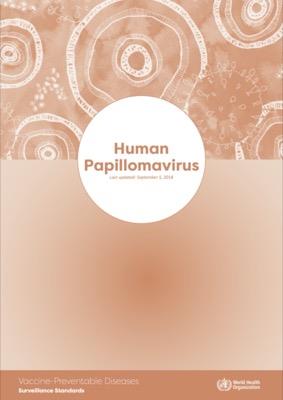Human Papillomavirus: Vaccine Preventable Diseases Surveillance Standards

Overview
Human papillomaviruses (HPV) are the most common
sexually transmitted infection. Although the majority
of infections do not cause illness, persistent infection
can result in disease. HPV infection is a necessary
cause of cervical cancer, which usually does not occur
until decades after infection.
The majority of cervical
cancers and other HPV-associated cancers are caused by
HPV types 16 or 18. In 2012, there were an estimated
266 000 HPV-related cervical cancer deaths in women
worldwide (1); > 85% of these deaths occurred in less
developed countries. Cervical cancers comprise 84% of
all HPV-related cancers worldwide. HPV can also lead
to other anogenital cancers (vagina, vulva, penis and
anus) and oropharyngeal cancers (head and neck). In
addition, HPV can cause anogenital warts, though the
HPV types that cause genital warts are different from
those that cause cancers.
